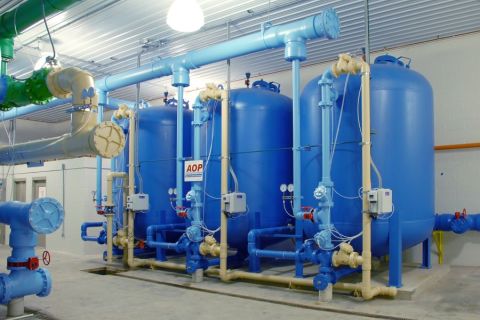NEW YORK—Enterprise Products Partners LP on July 29 said crude pipeline volumes fell about 21% in the second quarter as the coronavirus pandemic sent oil prices crashing but said higher demand for storage is expected to cushion the impact in 2020.
Oil demand crashed about 30% globally in April as the coronavirus pandemic restricted travel and shale producers were forced to curtail output because of plunging U.S. crude prices.
About 1.5 milion-1.8 million barrels per day (bbl/d) of crude production came off the market and while almost all of those volumes have now returned, long-term output growth is expected to remain muted, Enterprise said during an earnings call.
“There’s a fair amount of ground to be picked up ... we were at about 1,150 (well) completions a month in February and we think that as we get into 2022, that we'll be at around 950,” Senior Vice President Anthony Chovanec said.
Crude pipeline transportation volumes fell to 1.9 million bbl/d in the second quarter from 2.4 million bbl/d a year earlier. Aggregate gross volumes for crude pipelines in July are averaging about 80% of March levels.
Enterprise said its petrochemical and refined product service segment was particularly hit hard as demand fell.
The collapse in oil prices sent traders scrambling to secure storage space in the hopes of selling oil at a later date for higher prices—under a market structure known as contango.
“We were also able to benefit by using uncontracted storage capacity to capture contango opportunities in NGLs, crude oil and refined products and will continue to see this benefit for the remainder of 2020,” said Co-CEO Jim Teague.
Gross operating margins from crude marketing activities increased by $219 million to $184 million in the second quarter, thanks to using uncontracted storage capacity for contango opportunities.
U.S. crude exports have risen over the past couple of weeks, a company executive said, adding demand for lighter crude grades such as West Texas Light and Eagle Ford has increased from Asia, particularly South Korea, and Latin America.
Recommended Reading
Marketed: Private Seller Certain Royalty Properties in D-J Basin
2024-02-13 - A private seller retained RedOaks Energy Advisors for the sale of certain royalty properties in the D-J Basin.
Marketed: Confidential Seller Certain Mineral, Royalty Interests in Louisiana
2024-02-13 - A confidential seller retained RedOaks Energy Advisors for the sale of certain mineral and royalty interests in Louisiana.
DXP Enterprises Buys Water Service Company Kappe Associates
2024-02-06 - DXP Enterprise’s purchase of Kappe, a water and wastewater company, adds scale to DXP’s national water management profile.
ARM Energy Sells Minority Stake in Natgas Marketer to Tokyo Gas
2024-02-06 - Tokyo Gas America Ltd. purchased a stake in the new firm, ARM Energy Trading LLC, one of the largest private physical gas marketers in North America.
Marketed: Onyx Resources 40 Well Package in Texas, New Mexico
2024-03-25 - Onyx Resources has retained EnergyNet for the sale of a 40 well package plus 3,192.48 net leasehold acres in Crane, Ector and Winkler counties, Texas and Lea County, New Mexico.


